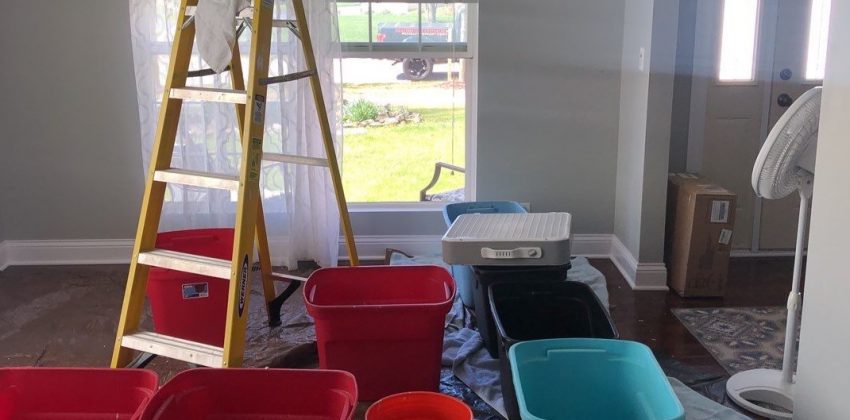January 1, 2019

HOW TO HANDLE WATER DAMAGE RESTORATION IN CHICAGO
Everyone would like to have a healthy home, free from serious issues that can arise. Unfortunately, things can happen unexpectedly. But if you are prepared with the right solutions to deal with the most likely disasters, like water damage, it’s easy to recover. Let’s take a look at what should be done to take care of floor restoration in Chicago should you ever need it.
WHERE TO BEGIN WHEN FACED WITH WATER DAMAGE
Water damage can completely ruin your floors, walls, and even your ceilings. If your home is not dried out quickly, your property and belongings could become damaged beyond repair, and you could be facing an even bigger problem…mold! But by acting quickly and taking the right steps, you can save your home from a complete disaster that leads to a seemingly endless path of constant repairs and more money spent. The key here is to make the right decisions quickly to begin the process of water damage restoration in your Chicago home.
FAST CLEAN UP
Water in the home can be extremely dangerous, so make sure it is completely safe before making any moves throughout your home.
The first step should be to turn off the electrical breakers to the affected area. Skipping this step can cause serious injury or death as electricity and water do not mix well. You could also end up with a fire to go along with your flood. If water has reached your electrical panel, consider calling in a professional to shut off all electrical currents.
Also, if you know that the problem was the result of a broken pipe, turn off the home’s water supply. In fact, this is a good moment to remind you that every family member in the home should be aware of the water shut-off. Make sure that everyone knows where it’s located and how to turn it off.
Once you’re safe, and the water source has been handled, it’s time to save your personal belongings. Take anything you find to a dry space and clean off as much water as possible. Then you can start the process of water removal. Chicago homeowners typically have a mop on hand but if the water levels are too much for a mop to handle, try a wet-dry vacuum. If you don’t have one, these can be rented from your local hardware store chain.
DRY THE AREA
Do the best you can to clean up all the water, but even when it’s gone, that doesn’t mean the job is done. The entire space must be left to dry out completely, and that means the water you can’t see must also be removed. That’s the water in the carpeting, the under-pad, the sheetrock, and in the insulation behind your walls. You may need the help of commercial air movers to circulate the air through the space, forcing the water out of those places. Along with that, you’ll need to set up a dehumidifier, which helps to remove the moisture out of the air to dry the space more efficiently and effectively. This will also reduce the chance of mold growth.
But is water removal really something you want to tackle yourself? It depends on the size of the space and how involved you want to be in making it right again. It’s not an easy job but if you feel up to it, you can rent the proper tools to get it done. Call McKinley Restoration Company for help or advice about your water extraction in Chicago and surrounding areas.
FIX THE PROBLEM
After the water cleanup, don’t forget that there is still that water leak problem to take care of. Otherwise, your cleanup was in vain. Call for a plumber to fix the original cause of the flooding. They can open the walls where necessary and make the repairs. A plumber can also check for any lingering moisture or mold that might have developed, replace insulation, and patch sheetrock as needed.
DON’T FORGET TO CALL YOUR INSURANCE COMPANY TO FILE A CLAIM OR HIRE A PUBLIC ADJUSTER TO REPRESENT YOU AND MAXIMIZE YOUR INSURANCE SETTLEMENT.
As is the case with anything in life, the more you plan for an emergency, the better prepared you will be to handle it effectively and quickly with the right information, tools, and resources. If you take the appropriate measures as soon as possible, you can prevent severe water damage to your Chicago home, saving you money in water mitigation and repairs.
